Iran-Backed Houthis Extend Red Sea Blockade To US, UK Ships
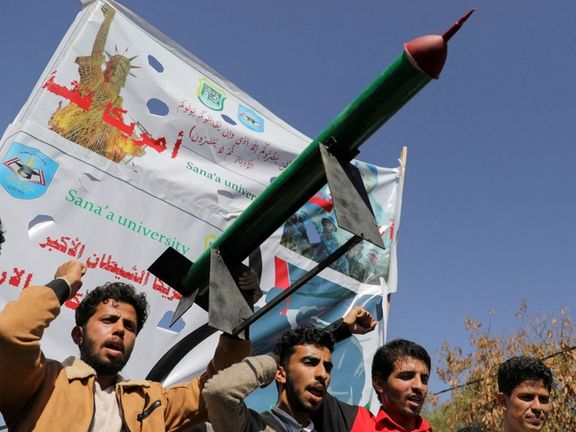
The Iran-backed Houthis in Yemen announced Thursday that in addition to its blockade on Israeli ships, American and British ships are barred from transiting through the Red Sea.

The Iran-backed Houthis in Yemen announced Thursday that in addition to its blockade on Israeli ships, American and British ships are barred from transiting through the Red Sea.
Vessels wholly or partly owned by Israeli individuals and entities, as well as vessels with the Israeli flag, were prohibited from the Red Sea, the Gulf of Aden and the Arabian Sea since November. The militia blockaded the critical trade route in allegiance with Iran-backed Hamas amidst the worst Gaza war since the terror group took control of the strip.
The Houthis' Humanitarian Operations Coordination Center said the blockade now applies to the UK and US which have launched dual attacks on the group's capabilities in Yemen and been at the helm of an international coalition of over 20 countries to counter the offensive which has had massive impacts on global trade and shipping.
The blockade, aiming to force Israel into a ceasefire, has seen multiple attacks on shipping since November, including the hijacking of the Galaxy Leader and its 25 crew members.
On Thursday, the latest Houthi attack saw a UK-owned, Palau-flagged cargo ship targeted by two missiles 70 nautical miles southeast of the Yemeni port city of Aden. The attack set the ship on fire, Reuters reported.
According to maritime security firm Ambry, the vessel named “Islander” was sailing from Thailand to Egypt when it was hit in the waters of the region. US-led coalition forces responded to the attack.
On January 10, the UN Security Council passed a resolution calling on the Houthis to stop attacks on shipping immediately, which has had no impact on the group recently redesignated by the US.
Also on Thursday, the emboldened Yemeni group targeted the southern Israeli town of Eilat, intercepted by Israel.
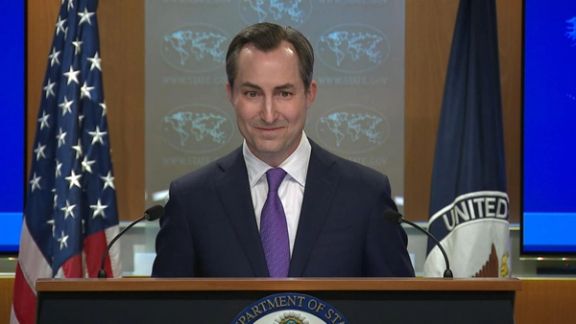
The United States has called Iran's decision to ban the use of virtual private network (VPN) services a "reminder of how much the Iranian regime fears its people".
Spokesman Matthew Miller made the comments amid Iran's lowest ebb, when on the eve of next month's elections, turnout is expected to be the lowest in the history of the Islamic Republic.
Miller said the government fears "what they [Iranians] are capable of when they are given unfettered access to the internet and information", the 2022 uprising and its subsequent rejection of the government reflecting the power of the people in the face of the country's tyrannical regime.
Blaming Tehran for “choking off information that people need to make decisions about their lives and decisions about their futures,” Miller stressed that the regime’s policies to restrict the virtual space have harmed businesses and cost Iran’s economy billions of dollars.
Iran’s National Virtual Space Center announced a resolution banning the use of VPNs in the country on Tuesday, approved by Supreme Leader Ali Khamenei.
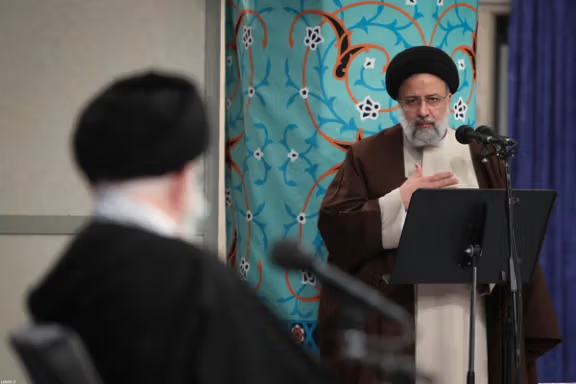
“Employing VPN devices is prohibited, except for those with a legal permit,” the resolution stated, without specifying who will be eligible for the permits and what actions and purposes will be allowed under the new law.
During the press conference, Miller also vowed that Washington will continue its support for internet freedom in Iran, an integral part of the US campaign to further the cause of human rights in the country.
“In the height of the protests in 2022 and 2023, as many as one in three Iranians used US-supported anti-censorship and digital security tools such as VPNs. There are millions of Iranians that have continued to use those tools to this day,” Miller went on to say.
Since the Women, Life, Freedom uprising, sparked by the death in morality-police custody of Mahsa Amini, the likes of Instagram and Whatsapp have been banned. For millions of small businesses, it has been crippling. Many small businesses depend on such platforms, not least, women in remote regions.
Miller’s remarks come against the backdrop of mounting criticisms against US President Joe Biden over his policies regarding Tehran. Many Iranian activists and opposition figures, as well as American politicians, accuse the Biden administration of being too lenient towards Iran.
Iran's disruption of VPN networks has been coupled with an ongoing surge in internet crackdowns to silence opposition voices. The disruptions have led to decreased internet access speed, exacerbating concerns over online censorship and surveillance in Iran.
The latest bans come amid a broader crackdown on internet freedom activists. Among those detained is Youssef Ghobadi whose unofficial detention has sparked widespread outcry, along with the arrest of another activist known as "Segaro," who was active on the X platform. The two had been working to develop and distribute circumvention tools such as VPNs to help Iranians bypass internet censorship.
In last year's Freedom House report, the NGO stated "Iran experienced the worst score decline among the countries assessed, driven by the authorities’ disproportionate and violent crackdown on nationwide anti-government protests". It noted that "the government also shut down internet services, blocked WhatsApp and Instagram, and expanded its repressive surveillance apparatus".
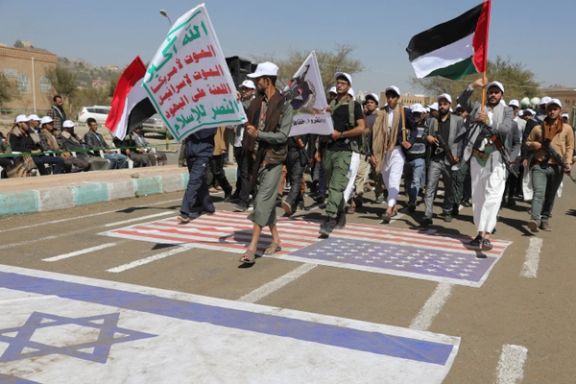
The US conducted a new wave of defensive strikes against Iran's Houthi militia in Yemen on Wednesday, targeting seven mobile anti-ship cruise missiles and one mobile anti-ship ballistic missile launcher.
The four strikes were conducted to safeguard merchant vessels and US Navy ships transiting the Red Sea amid the Yemeni militia's blockade of the Red Sea.
CENTCOM stated that “the missiles, launchers and UAS originating from Houthi-controlled areas of Yemen and determined that they presented an imminent threat to merchant vessels and to the US Navy ships in the region.”
The Yemeni militia waged a blockade since November in the Red Sea and surrounding area, in solidarity with Hamas in Gaza following the worst Gaza war since the Iran-backed militia took over the strip. After Hamas's invasion of Israel on October 7, Israel has since launched a relentless bombardment in a bid to rid Gaza of Hamas.
In the wake of the war, Iran's proxies around the region have acted in allegiance with Hamas with attacks on both Israel and US targets due to the US support of Israel's right to defend itself. Joint operations between the US and UK have seen multiple sites attacked in Yemen and a global coalition formed to counter the Yemeni offensive. Last month, US Navy forces intercepted a vessel ferrying advanced weaponry from Iran to bolster the Houthis.
The US State Department condemned the ongoing Houthi aggression and blockade on Wednesday, labeling their actions as "reckless and indiscriminate attacks" on civilian ships, accusing the militia of hindering humanitarian aid deliveries and exacerbating crises in Yemen, Sudan, and Ethiopia.
The US recently redesignated the Houthis as a result of the blockade and the dozens of attacks on global shipping, including the hijacking of the Galaxy Leader and its 25 crew in November.
“We and our partners will continue to take appropriate action, as needed, to protect freedom of navigation and commercial shipping from Houthi attacks in this critical international waterway and to safeguard vital economic and humanitarian assistance to countries in the region,” added the State Department in a statement.

The United States has indicted a Japanese leader of the Yakuza transnational organized crime syndicate over his attempts to traffic nuclear materials to Iran.
Takeshi Ebisawa is accused of conspiring to transfer uranium and weapons-grade plutonium from Myanmar to Iran for use in Iran's nuclear program, the US Justice Department reported on Wednesday.
According to the report, Ebisawa approached an undercover agent working for the US Drug Enforcement Administration (DEA) in early 2020 in Thailand, informing him that he had a large quantity of uranium and plutonium and asked him to find a customer for the materials.
The Yakuza leader then sent the DEA undercover agent “a series of photographs depicting rocky substances with Geiger counters measuring radiation, as well as pages of what Ebisawa represented to be lab analyses indicating the presence of thorium and uranium in the depicted substances,” the report added.
Following the DEA’s investigation, the undercover agent told Ebisawa that he could connect him to an associate, who was posing as an Iranian general. The Japanese side then suggested that plutonium would be more “powerful” than uranium for the production of nuclear weapons, offering to supply the material to the “Iranian general.”
The samples provided by Ebisawa were confiscated by Thai authorities and transferred to the US. According to the analysis by a US nuclear forensic laboratory, the samples were proved to include uranium and weapons-grade plutonium.
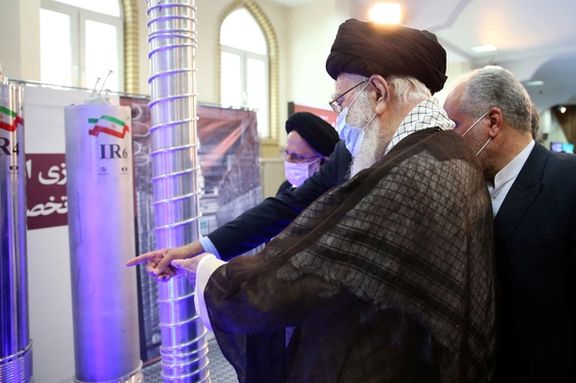
“It is impossible to overstate the seriousness of the conduct alleged in today’s indictment” against the Japanese Yakuza leader, said Damian Williams, the US Attorney for the Southern District of New York, adding that he conspired to traffic nuclear uranium and platinum fully aware "the material was going to be used in the development of a nuclear weapons program.”
Meanwhile, Matthew G. Olsen, the Assistant Attorney General of the Justice Department’s National Security Division, stressed that such a trade could have had dire consequences if Ebisawa’s plans had succeeded.
“The Justice Department will hold accountable those who traffic in these materials and threaten US national security and international stability,” he warned.
Ebisawa also negotiated with the DEA’s undercover agent in May 2021 for purchasing military-grade weapons, including surface-to-air missiles. The weapons were demanded by the leader of an insurgent group in Myanmar, added the report by the US Justice Department.
“This is an extraordinary example of the depravity of drug traffickers who operate with total disregard for human life,” said DEA Administrator Anne Milgram in reference to the Yakuza leader’s engagement in weapons, narcotics, and nuclear materials transactions.
In recent years, Iran has become more brazen and vocal around its nuclear program, sanctions so far unable to stem the tide of its progress. Earlier this month, Ali-Akbar Salehi, the former head of Iran's nuclear agency, said Iran has everything it needs for a nuclear weapon, claiming, "we have [crossed] all the thresholds of nuclear science and technology".
This is not the first time that Iranian officials have claimed to have the ability to build a nuclear bomb. In July 2022, Kamal Kharrazi, the head of the Strategic Council for Foreign Relations of the Islamic Republic and a close advisor to Supreme Leader Ali Khamenei, said in an interview with Al Jazeera that Tehran had the technical capabilities to build a nuclear bomb but does not intend to do so.
"We have increased the level of uranium enrichment from 20 percent to 60 percent in just a few days, and it can easily be enriched to 90 percent," Kharrazi said, implying that Iran is very close to making nuclear weapons.
The head of the UN's nuclear watchdog, Rafael Grossi, announced on Monday that Iran continues to enrich uranium well beyond the needs for commercial nuclear use, further adding that the regime is still enriching at an elevated rate of around 7 kg of uranium per month to 60% purity.
Enrichment to 60% brings uranium close to weapons grade, and is not necessary for commercial use in nuclear power production. Iran denies seeking nuclear weapons but no other state has enriched to that level without producing them.
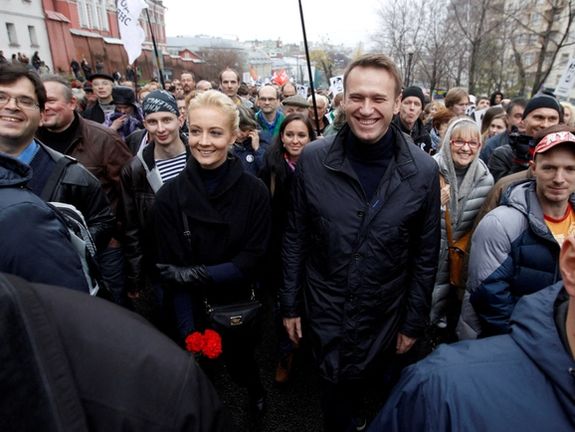
A newspaper previously inked to the Islamic Republic's Supreme Leader, Ali Khamenei, has accused Russian President Vladimir Putin of murdering opposition figure Alexei Navalny.
Simultaneously, at least two reports in the Iranian press have accused Putin and Russia of interfering in Iran's internal affairs.
The conservative Jomhouri Eslami newspaper, founded by Khamenei in 1979, charged in its February 20 edition that "Alexei Navalny is the latest victim of Russia's rulers. His murder is perhaps the most gruesome crime ever committed by Moscow's rulers." The newspaper listed 25 opposition figures it claimed were killed by Russian government agents, including Gazprom official Leonid Shulman, industrialist Igor Nasov, editor Vladimir Gorkin, and former KGB agent and critic of Putin, Alexander Litvinenko.
The newspaper pointed out that although execution has been abolished in Russia, there is a long list of those who have been killed with guns, in swimming pools, by poisoning, stabbing and other methods.
Such outright and open criticism is rare in Iran’s government-controlled and censored press, considering the close military and diplomatic alliance between Moscow and Tehran.

The daily called on the international human rights community to form a fact-finding committee to investigate Navalny's death, describing it as "yet another political murder in Russia" and evidence of "a modern despotic government which attempts to terrify its opponents by suppressing and eliminating its enemies."
Jomhuri Eslami concluded that "as a political leader who kills his opponents, Putin should not be trusted," warning the Iranian government of Russia's systematic disregard for the interests of other countries.
Earlier, Iranian politicians including Foreign Minister Mohammad Javad Zarif and the former chairman of the Iranian parliament's National Security and Foreign Policy Committee reiterated that Russia should not be trusted as an ally.
In an interview with Khabar Online website, former diplomat Fereydoun Majlesi pointed out the conflict between Iran and Russia's interests. He highlighted Russia's delays in delivering the Bushehr Power Plant to Iran, its rivalry in oil and gas markets, and its use of Iran as a shield in its conflict with Ukraine. Majlesi emphasized the need for Iranian officials to ensure that ties with Russia do not hinder Iran's relations with other countries.
Majlesi said that Russia has never helped Iran to further its foreign trade. On the other hand, the Russians delayed the delivery of the Bushehr Power Plant to Iran for 30 years. He pointed out that Russia is Iran's rival in the oil and gas markets. He also charged that Russia has been using Iran as a shield in its war against Ukraine. He added that by encouraging conflicts in the Red Sea, the Russians wish to disrupt the flow of oil through the region.
In another development related to Russia's interference with Iran's internal affairs, Nader Ghazipour, a former member of the Iranian parliament (Majles) from Urmia, who has been disqualified from running for the next parliament, alleged Russia's involvement in his disqualification.
Ghazipour told Khabar Online in Tehran he is aware that he has been disqualified for criticizing the government for its one-sided ties with Moscow. He said: "I was the only member of the Iranian parliament who made a speech against Russia at an open session of the Majles."
Despite these occasional media criticisms, the Iranian regime continues to supply offensive weapons to Moscow, including kamikaze drones, and according to the latest news, ballistic missiles.
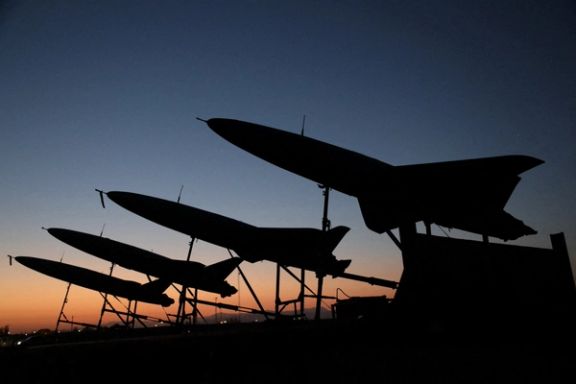
Despite global sanctions, Iran has imported at least $236 million worth of aircraft and drone engine parts over the past 10 years from countries including Turkey, the UAE, Germany and even Ukraine and the US.
Data by the Islamic Republic's customs organization, scrutinized by Iran International, show that around $26 million worth of items listed as prohibited under the US Treasury's sanctions against Iran was imported to the country only in the first eight months of the current Iranian year, which started on March 21.
Earlier in the month, the head of a top unit at the US Department of Homeland Security said that "sensitive" materials are showing up overseas -- in Iranian weapons. "The Iranian drones that are being recovered on the battlefield in Ukraine, that are being recovered on the battlefield throughout the Middle East, they do have sensitive US communications systems and they have sensitive microelectronics," Jim Mancuso, the assistant director of the Global Trade Division at Homeland Security Investigations, told ABC News. Iran, China and Russia are all "attempting to illegally acquire" US technology, he added.
Although Iran has numerous tools to circumvent the sanctions, including manipulating the documents about its trade of sensitive know-how, data about import and export of drone parts are still decipherable in the official customs documents.
The multifunctionality of parts used to manufacture drones as well as outsourcing the production of some parts to private companies and using intermediaries to buy the materials, have all contributed to the failure of efforts to prevent the development of Iran's drone industry. According to security and military experts, one of the main reasons Western countries have not yet been able to curb the flow of foreign parts to Iran’s drone program is the multifunctionality of imported parts as it is unclear whether a particular part is used in a civilian crop-dusting aircraft or a military drone.
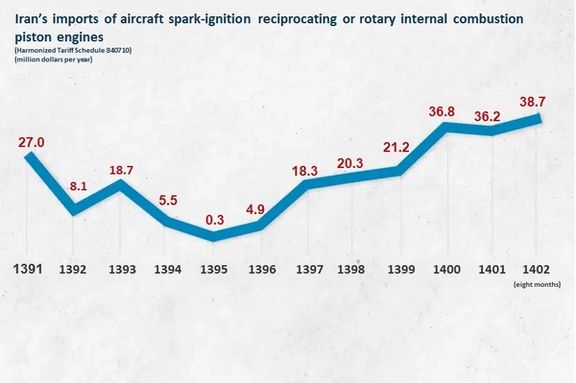
In June last year, the US Department of the Treasury issued a guide on Iran's drone industry. The 11-page “Guidance to Industry on Iran’s UAV-Related Activities” warned traders about items used by Iran in the manufacture of drones that may be subject to US sanctions. A table of 13 categories of items used in the production of drones included engines, navigational equipment, and electronics. The table listed the Harmonized Tariff Schedule (HTS) code, used internationally in customs information, and every traded item assigned a standardized international tariff code.
According to Iran’s custom organization statistics, a total of $236 million worth of “aircraft spark-ignition reciprocating or rotary internal combustion piston engines”, otherwise known as HTS 840710, were imported into the country from March 2012 to November 2023. The import of such products hit its lowest point in 1395 (the Iranian year from March 2016 to March 2017) at around $300,000, but the figure has been on rise ever since.
Following the Russian invasion of Ukraine, the import of these aircraft propulsion parts increased significantly, with the figure in the eight months ending in November exceeding that of the entire previous year. Seventy-five percent of the total imports in the 10-year timespan originated from Turkey ($52.8 million), Hong Kong ($50.9 million), the United Arab Emirates ($43.7 million), and China ( $28.8 million).
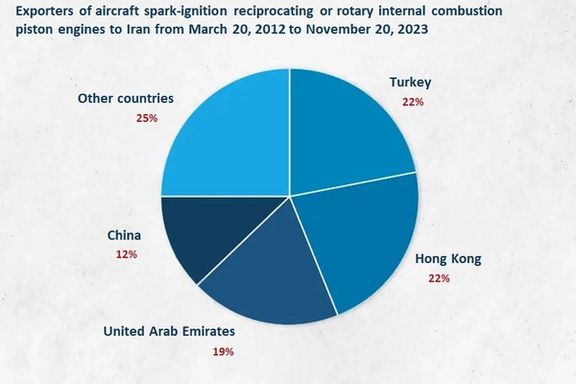
In addition to these primary sources, many European countries are also among the exporters of such equipment to Iran, most from Germany, followed by Ukraine ($2.1 million worth) and Slovenia.
While Ukraine has been exporting to Iran, the situation has now flipped, with Iran supplying drones and missiles to Russia to be used in the war on Ukraine. Reuters cited six sources as saying that Iran has provided Russia with around 400 powerful surface-to-surface ballistic missiles. Ukrainian President Volodymyr Zelenskyy said earlier this month that approximately 360 Iranian drones have been shot down in Ukraine since the beginning of January.
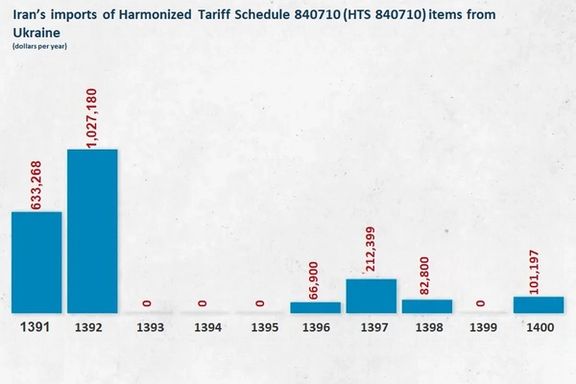
In February 2022, when Russia invaded Ukraine, Iran imported approximately $31,000 worth of parts and components of aircraft propulsion units used in drone manufacturing from Ukraine. Additionally, the United States also had a share in Iran’s procurement of drone parts, with more than $50,000 worth of equipment that took place in 2013 and 2018.
Iran went from being an importer to a global exporter, going from nearly none in 2020 to approximately $26 million in the first eight months of Iranian year 1402 (March to November 2023). Venezuela has been the first destination for the export of aircraft propulsion parts, with about $20 million worth of exports, which accounts for approximately 37% of the total exports of HTS 840710 items. Tajikistan follows with around $14.4 million, and Ethiopia with about $8.6 million.
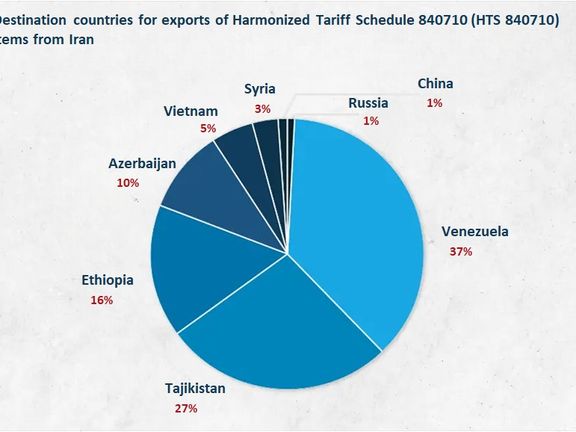
Farzin Nadimi, a defense and security analyst and a senior fellow of the Washington Institute, said in an article in November 2022 that and Venezuela began their collaboration in the production of unmanned aerial vehicles in early 2000s. The collaboration progressed to the point where the Islamic Republic established a drone production line for Venezuela in 2012.